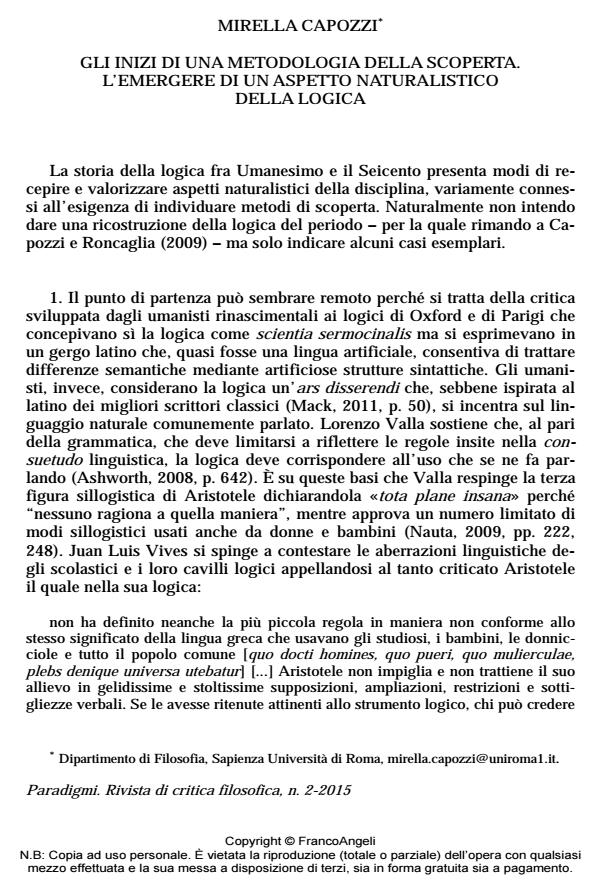Gli inizi di una metodologia della scoperta. L’emergere di un aspetto naturalistico della logica
Journal title PARADIGMI
Author/s Mirella Capozzi
Publishing Year 2015 Issue 2015/2
Language Italian Pages 15 P. 45-59 File size 83 KB
DOI 10.3280/PARA2015-002005
DOI is like a bar code for intellectual property: to have more infomation
click here
Below, you can see the article first page
If you want to buy this article in PDF format, you can do it, following the instructions to buy download credits

FrancoAngeli is member of Publishers International Linking Association, Inc (PILA), a not-for-profit association which run the CrossRef service enabling links to and from online scholarly content.
Between the 16th and the 17th centuries the stress put on natural logic and language by Renaissance logicians, Descartes’ inquiry on the cognitive sources of the certainty of inferences, and Locke’s insistence on the connection between logic and the workings of the mind, were often motivated by the inadequacy of the syllogism as a means of discovery. Also Leibniz and, later on, Lambert - both taking advantage of the cognitive contribution of sensibility in dealing with the signs of their logical calculi - favored heuristic methods that, partly inspired by Bacon, used mnemonic/inventive tools such as topoi, formerly devised for persuasive arguments ranging in the field of rhetorical probability. This was not intended as a retreat to a natural naïve logic, but as the promotion of a naturalized logic attentive to the way humans think, and capable of running the risk of error.
Keywords: Agricola, Descartes, heuristics, Lambert, Leibniz, Locke, naturality of logic.
Mirella Capozzi, Gli inizi di una metodologia della scoperta. L’emergere di un aspetto naturalistico della logica in "PARADIGMI" 2/2015, pp 45-59, DOI: 10.3280/PARA2015-002005